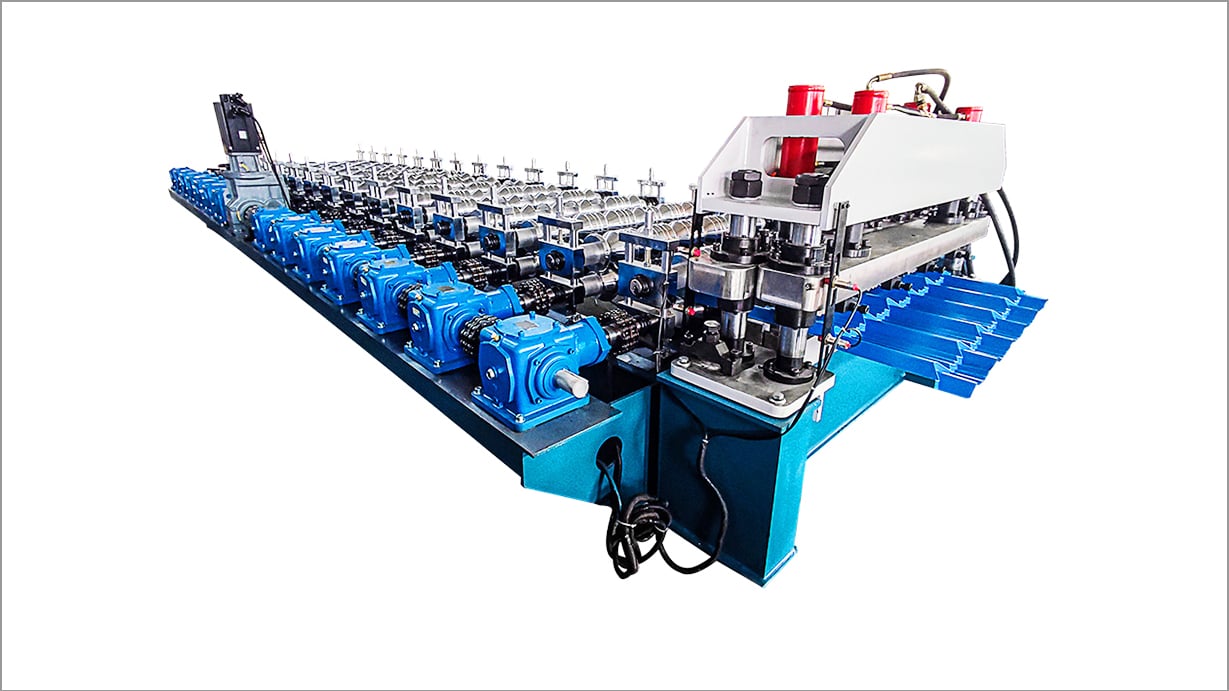Introduction
automatic glazed tile roll forming machines have revolutionized the tile manufacturing industry. These machines offer a fast, efficient, and cost-effective way to produce high-quality glazed tiles. In this article, we will explore the various aspects of automatic glazed tile roll forming machines, including their functionality, benefits, and key features.
1. Understanding Automatic Glazed Tile Roll Forming Machines
Automatic glazed tile roll forming machines are specialized equipment designed for the production of glazed tiles. These machines utilize a continuous process to transform raw materials into finished tiles. The process involves a series of steps, including material feeding, roll forming, cutting, and stacking.
2. How Does an Automatic Glazed Tile Roll Forming Machine Work?
An automatic glazed tile roll forming machine operates by feeding metal coils into the machine. The coils are then passed through a series of rollers, which gradually shape the metal into the desired tile profile. The machine also incorporates a glazing system, which applies a protective layer to the tile surface. Finally, the machine cuts the tiles to the desired length and stacks them for further processing or packaging.
3. Benefits of Using an Automatic Glazed Tile Roll Forming Machine
Using an automatic glazed tile roll forming machine offers numerous benefits for tile manufacturers. Firstly, these machines significantly increase production efficiency, allowing for faster tile production and reduced labor costs. Secondly, the automated nature of these machines ensures consistent product quality, minimizing the risk of defects or variations. Additionally, automatic glazed tile roll forming machines are highly versatile and can produce a wide range of tile profiles, catering to different design preferences.
4. Key Features to Consider
When selecting an automatic glazed tile roll forming machine, there are several key features to consider. Firstly, the machine should have a robust frame and structure to ensure stability during operation. Secondly, it should have precise roll forming capabilities to create accurate tile profiles. Additionally, the glazing system should be efficient and reliable, providing consistent coverage. Other important features to look for include automatic length adjustment, easy maintenance, and user-friendly controls.
5. Factors to Consider When Choosing a Manufacturer
Choosing the right manufacturer for your automatic glazed tile roll forming machine is crucial to ensure a reliable and efficient production process. Consider factors such as the manufacturer's experience in the industry, their reputation for product quality, and their after-sales support. It is also advisable to request demonstrations or visit the manufacturer's facility to assess the machine's performance firsthand.
6. Maintenance and Care
To ensure the longevity and optimal performance of your automatic glazed tile roll forming machine, regular maintenance and care are essential. Follow the manufacturer's guidelines for routine maintenance tasks, such as lubrication and cleaning. Additionally, train your operators on proper machine operation and troubleshooting techniques to prevent unnecessary downtime or damage.
7. Safety Considerations
Operating an automatic glazed tile roll forming machine requires strict adherence to safety protocols. Ensure that your operators are trained in machine operation and safety procedures. Provide appropriate personal protective equipment (PPE) and implement safety measures such as emergency stop buttons, guards, and warning signs. Regularly inspect the machine for any potential safety hazards and address them promptly.
8. Future Trends and Innovations
The automatic glazed tile roll forming machine industry is continually evolving, with several exciting trends and innovations on the horizon. One such trend is the integration of artificial intelligence (AI) and machine learning algorithms into these machines, enabling real-time quality control and predictive maintenance. Additionally, manufacturers are exploring eco-friendly materials and processes to reduce the environmental impact of tile production.
9. Common Challenges and Troubleshooting
While automatic glazed tile roll forming machines offer numerous advantages, they may encounter occasional challenges. Common issues include material feed problems, roll forming defects, glazing inconsistencies, and machine malfunctions. It is important to have a trained technician or engineer available to troubleshoot these issues promptly and minimize production downtime.
10. Conclusion
Automatic glazed tile roll forming machines have transformed the tile manufacturing industry by offering a fast, efficient, and cost-effective production solution. By understanding the functionality, benefits, and key features of these machines, tile manufacturers can make informed decisions when selecting and operating an automatic glazed tile roll forming machine. With proper maintenance, care, and adherence to safety protocols, these machines can contribute to the success and growth of tile manufacturing businesses.

